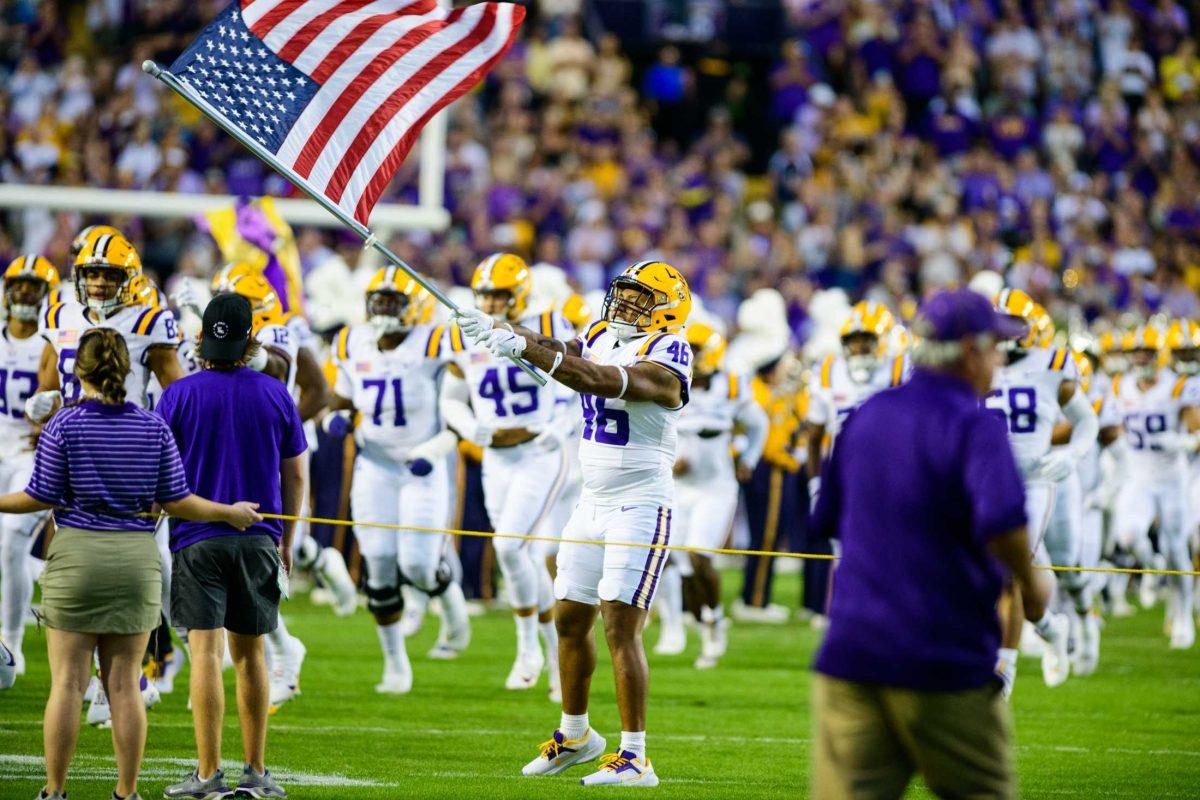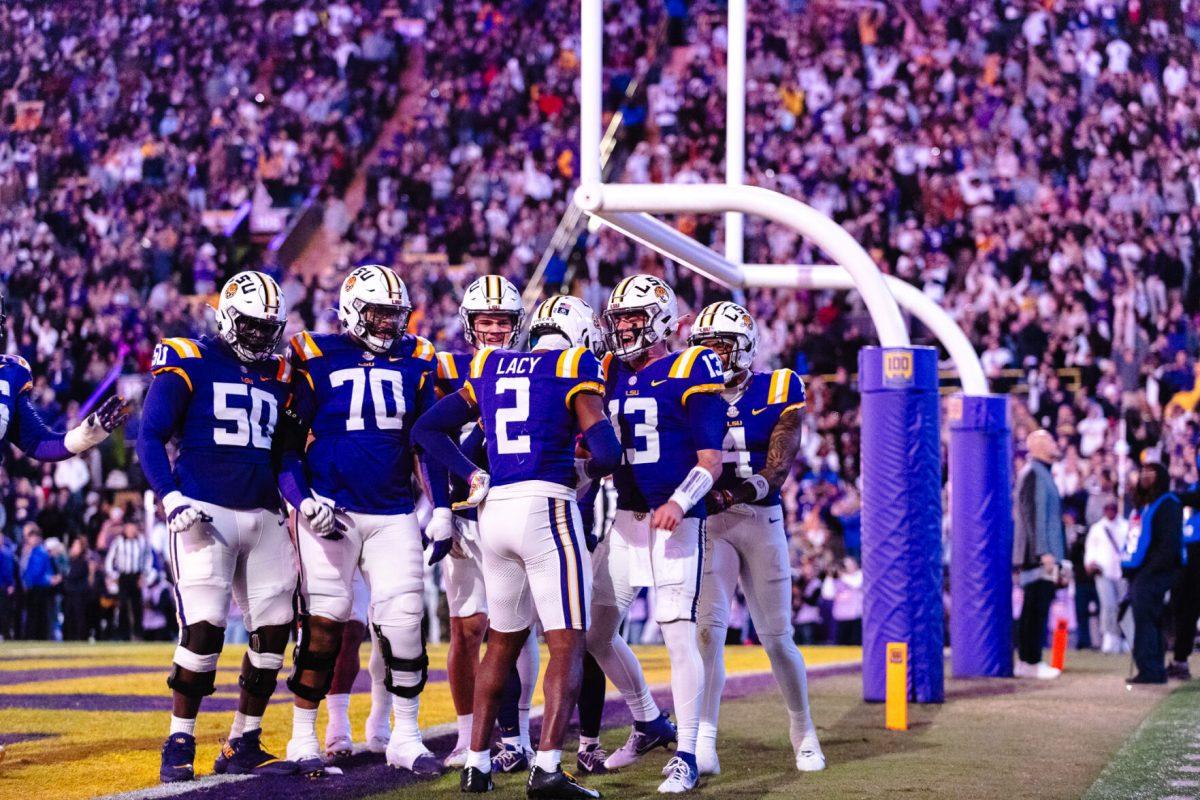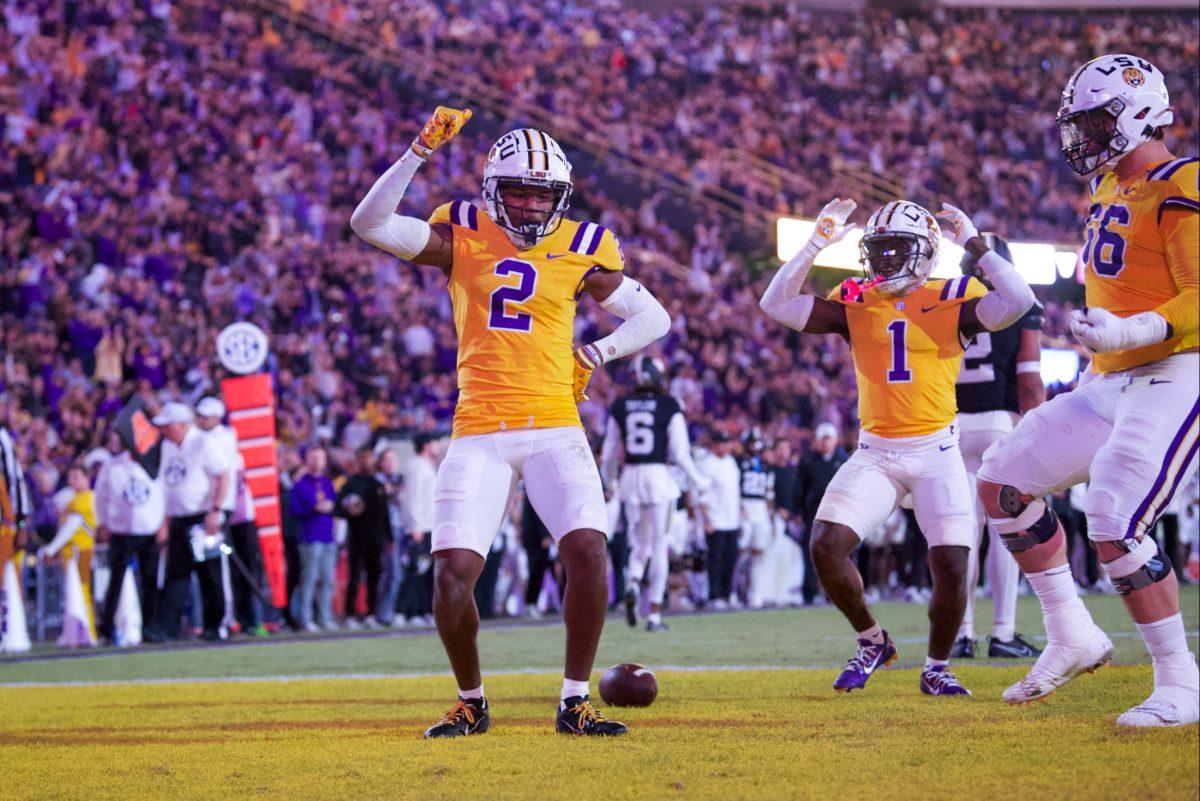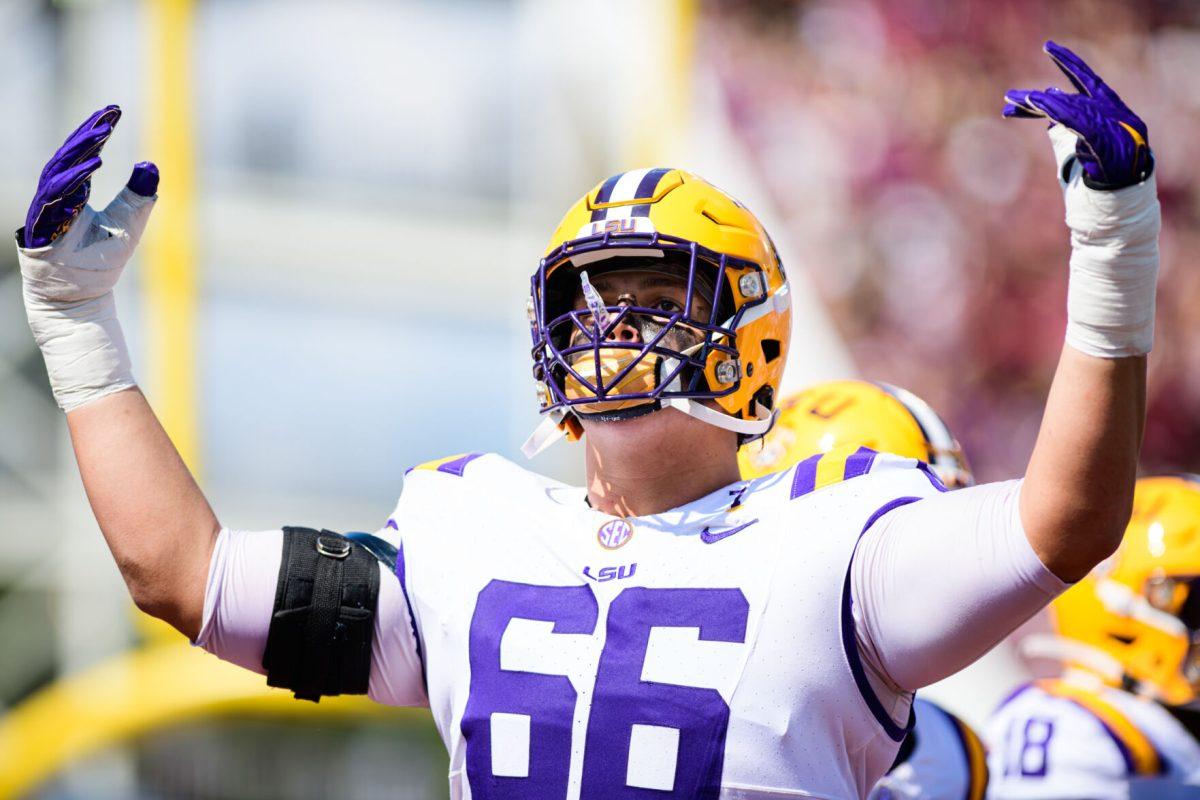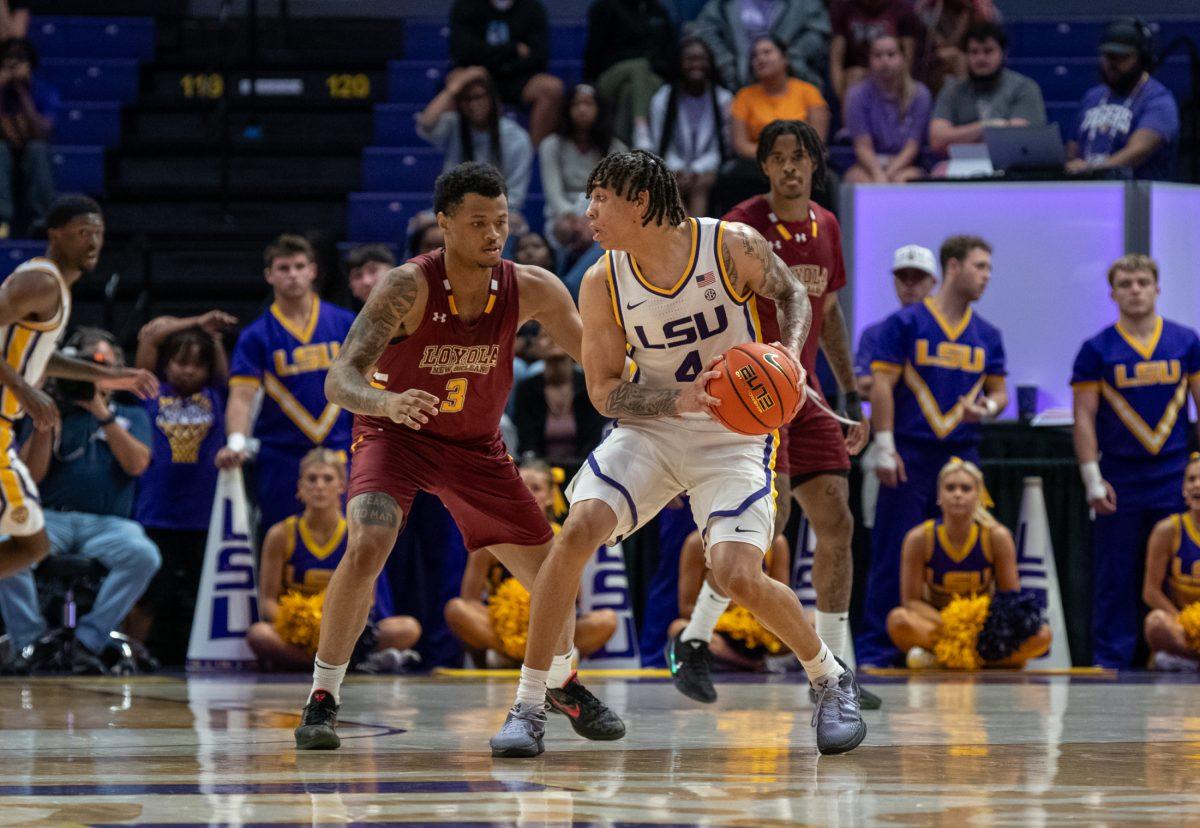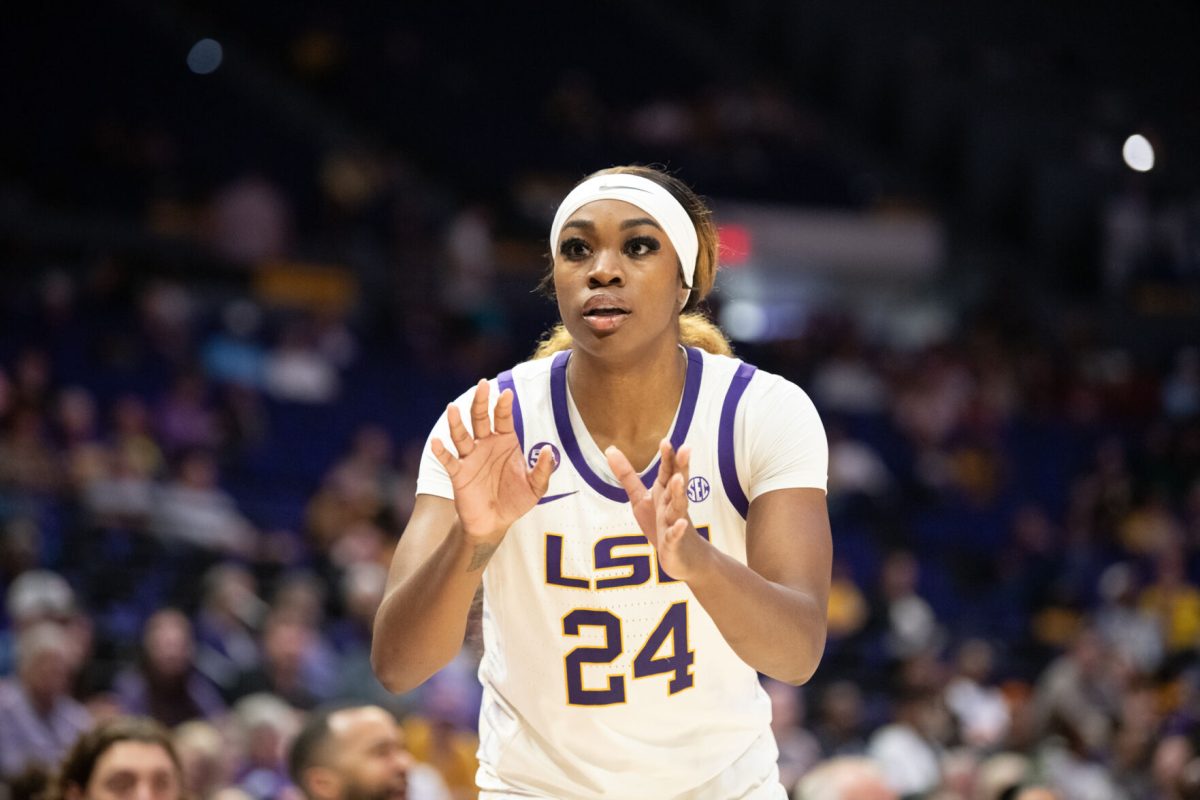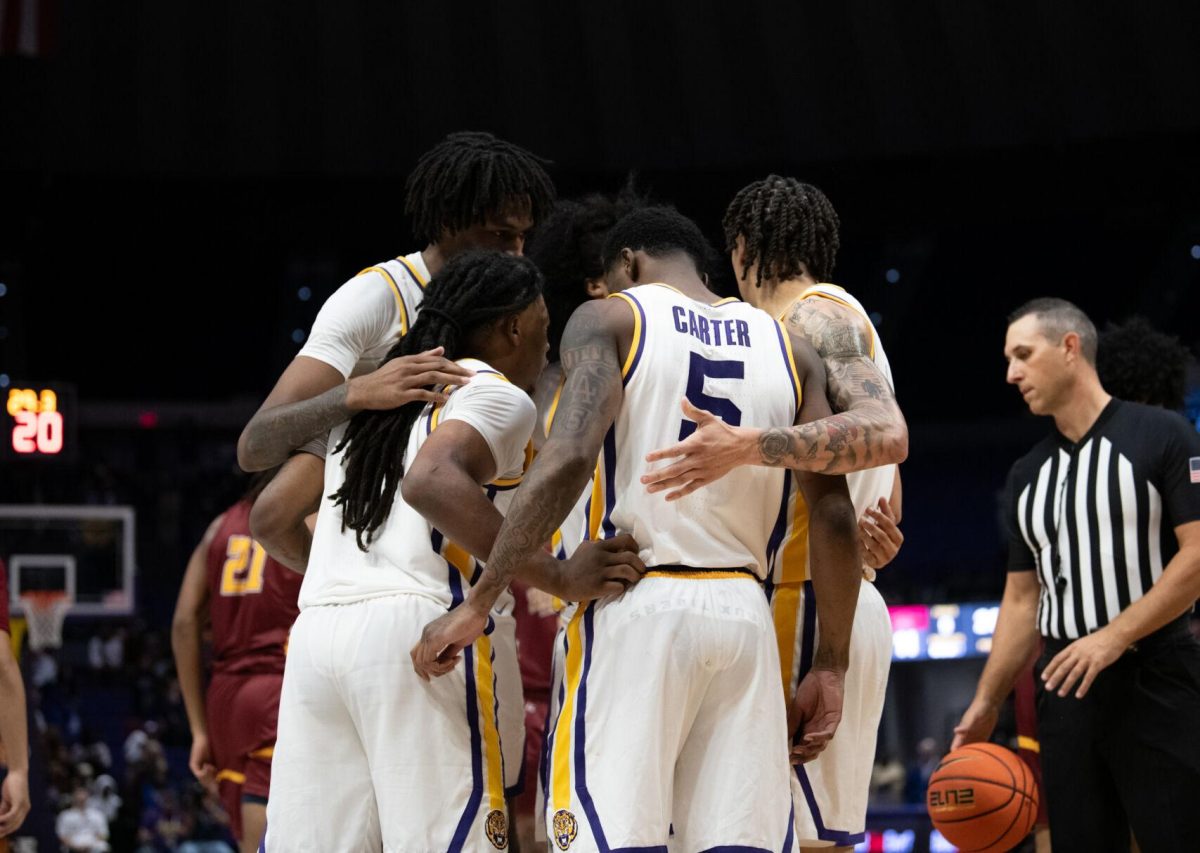LSU football’s Shelby Lee Jr. clutched onto an American flag as he led the Tigers onto the field, surrounded by cheers from fans and the echoes of cannons. Seconds later, on the other side of the field, LSU’s opponent made its way out of its own tunnel. Even then, the cheers bouncing from the walls of Death Valley didn’t subside.
In fact, they grew louder.
LSU wasn’t playing just any team for this year’s homecoming game. It was facing off against the Black Knights of Army football.
Playing Army broke LSU’s five-year streak of playing against a Southeastern Conference-opponent in a homecoming game. This opponent brought a sense of pride with them from New York. That pride flooded the streets of Baton Rouge.
Lee is a walk-on linebacker who, before his time at LSU, served three years and eight months in the United States Army as an 11B Infantryman. His carrying of the American flag symbolized an unspoken unification between the two teams, sparking excitement throughout the stands.
“The fact that we are playing Army today is special because LSU and the people are very, very patriotic,” Jeannie Darling, an LSU fan, said before the game. “We’re an old war school, so we welcome Army. We’re very proud to show that red, white and blue and that love for America, and appreciate the service the men and women have given for our country.”
Hosting Army for LSU’s homecoming game brought a certain kind of energy to Baton Rouge. LSU fans welcomed the West Point fans with what appeared to be open arms, hoping to pay homage to the team.
“The entire atmosphere really resonated in honoring our Service Academy and those that serve our country, so it was a great night here in Tiger Stadium,” LSU head coach Brian Kelly said following the game.
This was only the second time in program history that both teams had faced off against one another. That first game in 1931 ended in favor of the Black Knights when Army took down the Tigers 20-0 at Michie Stadium in West Point, New York.
Army stepped onto the grass of Tiger Stadium for the first time ever, quickly made aware of how different the environment was from their own.
“There’s tailgating at West Point, but I can tell you it’s nothing like this,” Grant Smith, a retired Army Colonel, said before the game. “We don’t have a 100,000-seat stadium. We have the same level of excitement for football, but this is a different level of tailgating.”
Army welcomed the challenge of playing against LSU, though, in what has been recognized as one of the most brutal college football environments across the nation.
“I know Army is excited to be here and to be playing LSU,” Smith said. “It’s a special treat because we don’t always get to play the big Power 5 teams.”
This matchup was kicked off with an appearance from the Silver Wings Parachute Team. Fans cheered louder and louder as each parachutist landed safely on the field, gracefully floating over the camouflage painted endzones. The last parachutist held onto the game ball.
Throughout the four quarters, LSU paid recognition to veterans and those actively serving. The jumbotrons lit up as the cameras panned back and forth to groups of Army cadets in the stands. The people who filled the stadium moved as one to a standing ovation.
“Great night again in Tiger Stadium, relative to our opponent and having West Point here,” Kelly said. “I thought our game management, our administration is to be commended for the way that we welcomed The Service Academy in here.”
Following LSU’s win, the two teams joined together first in front of the West Point Band, and then in front of the Golden Band from Tigerland, listening to each schools’ alma mater.
Though the stadium had quickly emptied, those who remained bore witness to what this game was truly about.
This game became more about honor, respect and appreciation than football. Those feelings radiated throughout the stadium the entire night.
Army left Death Valley with a tough loss – but with the love that Baton Rouge worked to pour into it over the course of four quarters.



